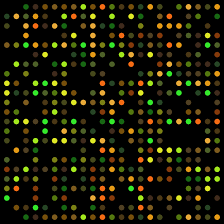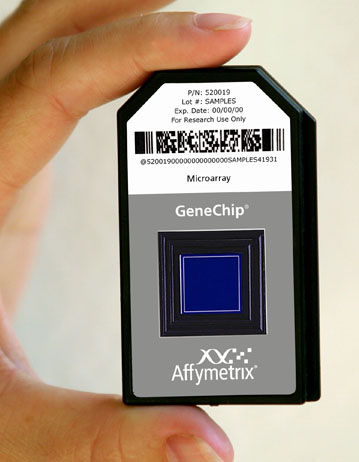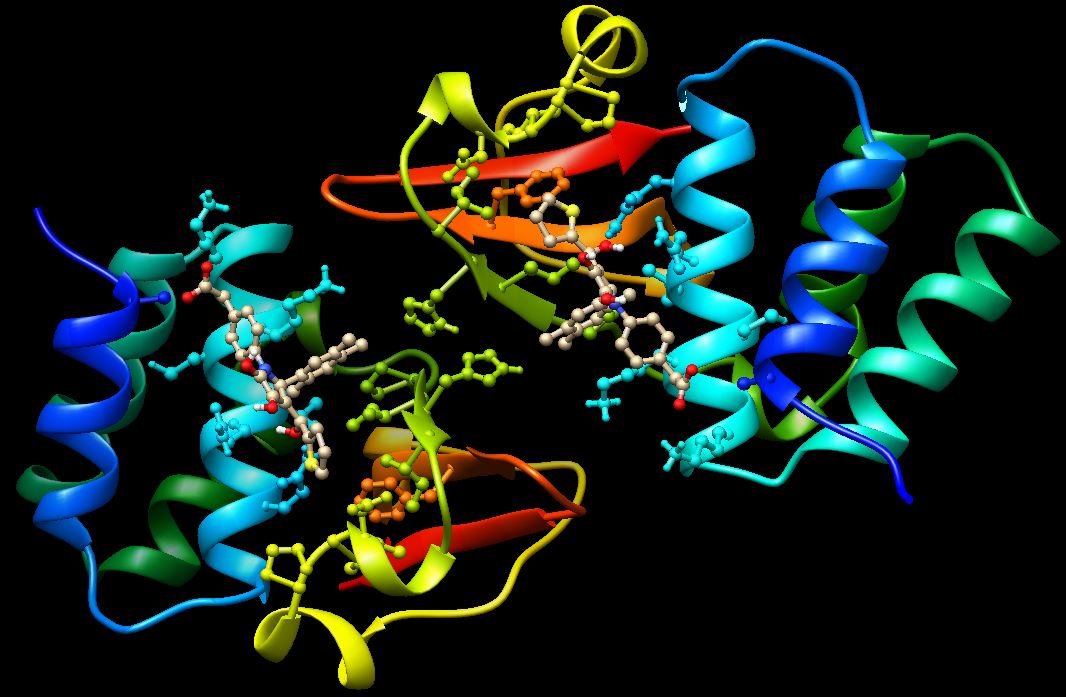Analysis of Affymetrix Microarray Data Using Bioconductor

This training will show you how to use the Bioconductor package in R to analyze Affymetrix microarray data. You will learn to:
- import your own or publicly available microarray data
- assess and control the quality of the data
- identify differentially expressed genes between two or more groups of samples
- determine which Gene Ontology categories are over-represented in the set of differentially expressed genes
- group genes with similar expression profiles

This training is aimed at researchers who are applying or planning to use Affymetrix microarrays in their research. The aim of this training is to familiarise the participants with microarray data analysis methodologies and provide hands-on training on the use of Bioconductor for Affymetrix microarray analysis. Participants can use their own data during the training as long as the design of the experiment is similar to those used in the training e.g. comparison of two or multiple groups of samples.
Continue Reading »
| Dates:Every third week of the month. |
| Duration: 5 days. |
| Venue: Nairobi, Kenya. |
| PREREQUISITES |
This training is aimed at researchers who are applying or planning to use Affymetrix microarrays in their research. The aim of this training is to familiarise the participants with microarray data analysis methodologies and provide hands-on training on the use of Bioconductor for Affymetrix microarray analysis. Participants can use their own data during the training as long as the design of the experiment is similar to those used in the training e.g. comparison of two or multiple groups of samples. |
| FEES |
- Kshs. 50,000/- (Inclusive of VAT 16%) for East African residents. Non-East African students pay 25% more on all charges.Fee covers tuition, training material, certificate, drinks and meals only.
- Fees are payable strictly in advance (at least 4 working days before the starting date.
- Groups with a minimum of 5 people will enjoy a 10% discount and early bird registration (at least 2 weeks before the start) will be offered a 5% discount
- There will be a 10% administrative charge for cancellations received in writing up to 20 working days before the start of the course. No refunds will be made for cancellations received within 20 working days of the course start date or for the inability to attend the course for whatever reasons. KIBs is not liable for non-attendance due to travel disruptions, health problems or any other reason that might lead to a delegate not being able to attend the course. Substitutions may, of course, be made at any time, providing you inform us in writing.
- Fee is payable by bankers cheque or cash deposit to: Fee is payable by bankers cheque or MPESA to: Bioinformatics Institute of Kenya. A/C No. 01192845321700, Cooperative Bank, Co-op House Branch, Nairobi, Kenya. SWIFT Code KCOOKENAXXX. Branch Code: XXX. MPESA PAY BILL: Business number: 400222. Account number: 1679821#MDA. PAYPAL: [email protected].
|
| REGISTRATION |
To register, please download the booking form fill it and send it to us through:
Email: [email protected]. |
| TOOLS AND SOFTWARE |
| Affymetrix GeneChip Fluidics Station 450 |
| Software and online resources: R v.3.1.2, Bioconductor, GEO, ArrayExpress |
| Course material including a comprehensive training manual and a CD with software |
| TRAINING PROGRAM |
|
DAY 1. INTRODUCTION TO MICROARRAYS
DAY 1. INTRODUCTION TO R PROGRAMMING, BIOCONDUCTOR, GEO, AND ARRAYEXPRESS
- Downloading and installing R
- R Workspace and common commands
- Installing Bioconductor
- Installing and loading Bioconductor packages
- Obtaining files and datasets from GEO and ArrayExpress
DAY 2. ANALYSIS OF MICROARRAY DATA USING BIOCONDUCTOR PACKAGES
- Loading microarray data into Bioconductor
- Analysis of microarray data using Bioconductor: Retrieving intensities using exprs(),returning matrices with perfect match (PM) probe intensities, retrieving vectors with probe set Ids, probe indices of all the PM probes of a probe set, and matrices with intensities for PM probes, and plotting the intensities of all the probes of a probe set using ggplot
- Retrieving sample annotations
|
DAY 3. QUALITY ASSESSMENT OF MICROARRAY DATA
- Microarray Noise
- Importance of Assessing the Quality of Microarrays
- Methods of Quality Assessment
- Quality Assessment using Images
- Quality Assessment using Box Plots
- Quality Measures to Assess the Microarray Data
|
|
DAY 4. NORMALIZATION OF MICROARRAY DATA
- Segmentation-oriented methods
- Surface-oriented methods
- Visualization, exploration, analysis, assembly, and submission of 2D gel data using SWISS-2DPAGE, World-2DPAGE Constellation,World-2DPAGE Repository, Melanie, Make2D-DB II,andMiapeGelDB
|
|
DAY 5. IDENTIFICATION OF DIFFERENTIALLY EXPRESSED GENES
DAY 5. EXERCISES
DAY 5. AWARD OF CERTIFICATES
|
|



 Video/Audio Resources
Video/Audio Resources






